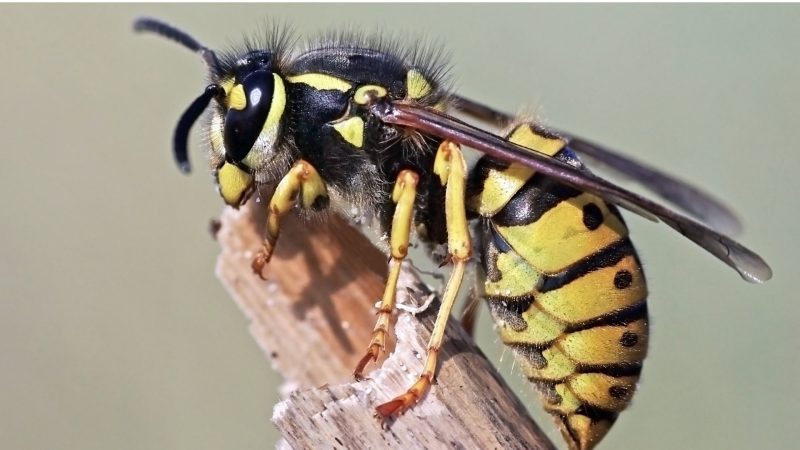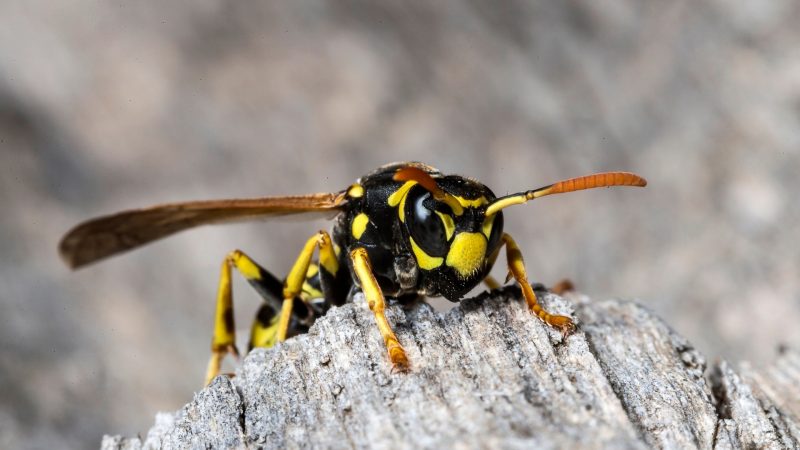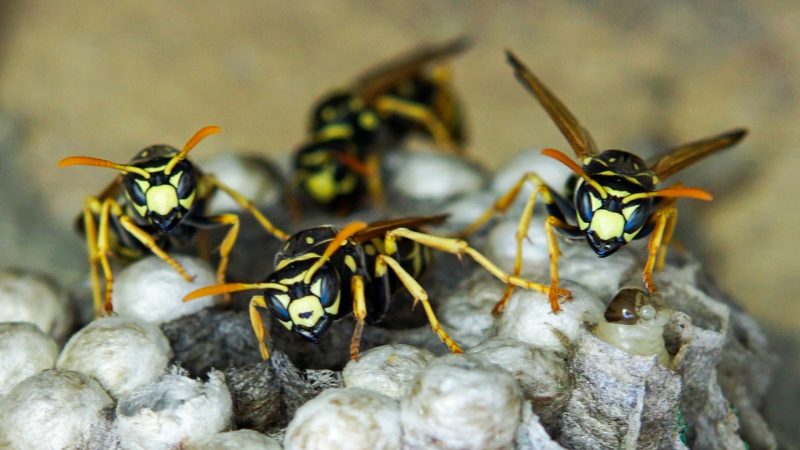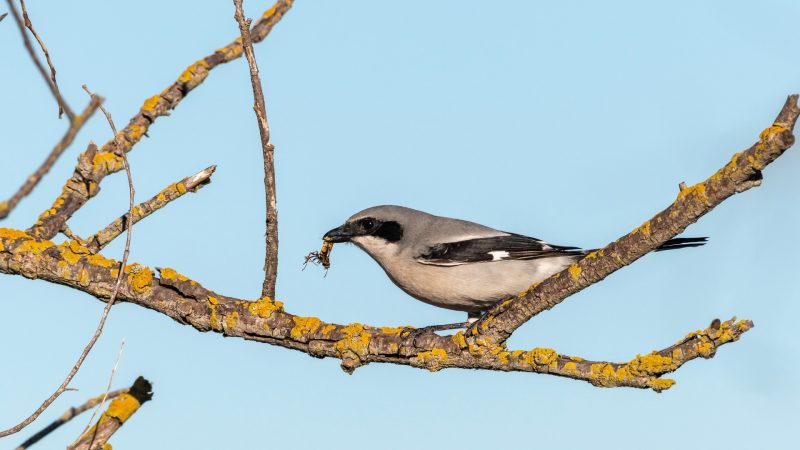Wasps are abundant, especially throughout the spring and summer months. They are most active during the daytime and can be seen in groups or on their own. There have been numerous instances where people have attempted to eliminate wasps during the day and were attacked and got stung.
Do wasps attack at night? Wasps, in general, do not attack at night. The majority of wasps sleep at night, but some undertake nocturnal tasks such as caring for their larvae and nests. That’s why it’s always a good idea to get rid of wasps’ nests at night. However, if not performed correctly, wasps can still attack people in the middle of the night if provoked and threatened.
This article will go into better detail about wasp behavior especially at night, including how they attack, what causes their defensive actions, how to get rid of their nests, and much more.
Do Wasps Sleep at Night?

Wasps do sleep at night. They are most active during the day and rest during the night. When wasps’ body temperature drops, they stay motionless in a resting position, and their behavior resembles sleep.
However, some wasps may stay awake overnight and work on their nocturnal responsibilities, such as taking care of their larvae and constructing and repairing the nest.
Related: Do Wasps Attack at Night? | Important Facts!
Can Wasps See at Night?
Wasps can’t see well at night. Their eyes are so small and less effective in the dark, making it difficult for them to see. That is why they do not fly at night and prefer to stay in their nest instead.
Do Wasps Sting at Night?
Yes, even though they are less active at night, they can still sting in self-defense if they feel threatened or provoked. Wasp nests are recommended to be removed at night when wasps are less active. However, if not done correctly, they might attack and sting people to defend their nests.
Do Wasps Attack for No Reason?

No, wasps aren’t particularly aggressive insects. When they see people, they do not initiate attacks. In fact, they are afraid of humans because they understand humans are bigger creatures.
Additionally, they don’t just attack people for no reason. They usually attack if they feel threatened and provoked. It’s a defense mechanism they use to protect themselves or their nest.
Do Wasps Attack Spiders?
There are types of wasps that attack spiders and prey on them. Spider wasps and digger wasps commonly hunt other insects, including spiders. They sting and paralyze the spiders, use them as hosts, and lay their eggs inside the living body of the spiders.
Do Wasps Attack Butterflies?
Not directly, although they do prey on caterpillars and butterfly eggs. Butterfly larvae are preyed upon by parasitic wasps, which deposit eggs inside their bodies. Wasps are also known to fight and chase butterflies to keep them away from their nest and prevent them from laying eggs on plants near their nests.
Why Do Wasps Attack Bees?
Wasps attack bees because of the honey they produce. They like to feed on honey since it is a good source of sugar. Wasps only attack bee colonies that are weak. They will attack and drive away bees defending the nest, then feast on the honey within the hive.
Related: Do Wasps Make Honey? | How Do Wasps Eat and Their Eating Habits
What Causes Wasps to Attack?

The main reason why wasps generally attack and sting humans is that they feel threatened. Their sting is a protective mechanism that keeps them and their nest safe.
Some wasps attack and prey on other animals and insects. Parasitoid wasps attack other insects to find a suitable host for their eggs. They use venom and stings to paralyze their prey and keep them alive so they can host their eggs inside their bodies.
What Attacks Wasps?

Wasps are preyed upon by a variety of predators. They could be preyed upon by other insects and animals. Birds such as sparrows, wrens, orioles, woodpeckers, and warblers have been observed eating wasps.
Frogs, lizards, toads, and salamanders are among the reptiles and amphibians that feed on wasps. Finally, wasps can be eaten by larger insects such as praying mantis, robber flies, dragonflies, centipedes, beetles, and moths.
What to Do if Attacked by Wasps?
Wasp stings are painful, but they are usually mild. The pain and sting can go away in a matter of hours, and the wound can heal in a matter of days. If you are attacked by wasps, you can do the following:
- Try to be as calm as possible while you move away from the wasps. Clean the wounds as soon as possible with soap and water.
- Applying an ice pack to the affected area can help minimize swelling.
- Antihistamines can help relieve itching and prevent allergic reactions.
- If you experience severe reactions as a result of the wasp sting, get medical assistance.
How Can You Avoid Wasp Attacks?
To avoid wasp attacks, you can do the following:
- Stay away from wasp nests. Staying away from wasps and their nests is the best way to avoid wasp attacks.
- Don’t panic. If wasps are present, be calm and avoid making noise or thoughtless movements that may frighten them.
- Avoid wearing bright colors. Wasps are attracted to bright colors and may mistake them for flowers, where they can feed on nectar.
- Keep sweet food and drinks away. Wasps are attracted to almost everything that smells sweet. Keep sweets away and properly seal them.
Should You Kill a Wasp?
Killing a wasp can lead to danger. A dying wasp will produce signals that warn other wasps in the area to take precautions. If the other wasps get in contact with you, they are likely to attack because they are on defense mode.
Additionally, wasps are important to the environment. They are important pollinators and make a significant contribution to the ecosystem. Before you kill them, consider the possible benefit they can bring.
Related: How to Get Rid of Wasps in the House? | Information and Facts
Do You Have to Kill Wasps at Night?
If wasps must be killed, do it at night when they are less active and more likely to stay inside their nests. Even though wasps can still sting at night, their vision in the dark is weak. When trying to get rid of their nest, always make sure you’re well-equipped.
How Do You Deal With an Active Wasp Nest?
To deal with an active wasp nest, you can do the following:
- Wear protective clothing. When attempting to remove a wasp’s nest, it’s essential to wear protective clothing. It is recommended to wear long-sleeved shirts, jeans, gloves, socks, and boots. Wear a scarf around your face, as well as goggles or protective eyewear.
- Use pesticide spray . Use a pesticide spray that is specifically designed to kill wasps. There are multiple common pesticides that can be bought from local supermarkets or stores.
- Use homemade spray. Using a dish soap mixed in water solution to destroy wasps in their nest can also be effective. Water mixed with essential oils such as peppermint is also known to kill them in their nests.
- Deal wasp nests during nighttime. It is recommended to destroy wasp nests at night where they are resting and less active. During the night, all wasps should be within their nests.
- Call professionals. Hiring wasp control professionals to deal with an active wasp nest is always an option. Especially if you are not confident, you can handle the nest on your own.
Related: How to Get Rid of a Black Wasp and Prevent It From Coming Back? | The Effective Guide
How to Spray a Wasp Nest at Night?
To spray wasp nest at night, you can do the following steps:
- Step 1: When spraying wasp nests, always use protective gear. Even though wasps are less active at night and can’t see well in the dark, if they are threatened, they can still hurt and sting people.
- Step 2: Use pesticides that are designed to kill wasps. Some insecticides may not be strong enough to kill wasps. Killing wasps in nests with homemade spray solutions like dish soap and water or water mixed with essential oils like peppermint can also be effective.
- Step 3: Spray the nest from a distance. Never get too close to the nest to avoid being swarmed by aggressive wasps.
Related: Hornet Nest vs. Wasp Nest | Similarities, Differences, and How to Get Rid of Them
List of Sources
Eaton, A. T. (2016). Controlling Wasps, Bees and Hornets Around Your Home.
Farnsworth, A. (2002). Quiescent Paper Wasps – Do They Sleep?
Russell, H. (2017). Getting rid of wasps’ nests.
- Bed Bug Surge 2025: How to Detect, Prevent, and Safely Eliminate Infestations in Top U.S. Cities - June 18, 2025
- Asian Needle Ants Invade US Homes: 2025 Guide to Identification, Risks, and Effective Control - June 11, 2025
- New World Screwworm Alert: How US Livestock Owners Can Prevent Outbreaks and Protect Herds [Summer 2025 Update] - June 8, 2025


